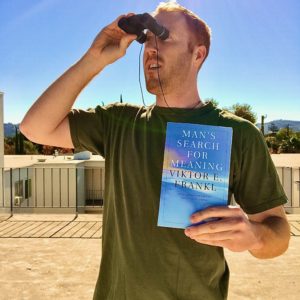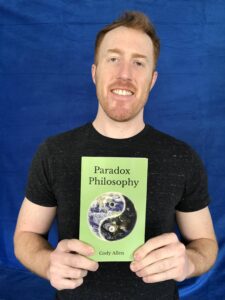 This is exactly the right book to read during the coronavirus pandemic of 2020. Viktor Frankl was a prisoner of multiple Nazi concentration camps and, although our conditions are not nearly as dire, most of us have felt like prisoners in our own homes for at least some period of time this year. With that correlation in mind, this book offers many great insights into why we should continually get out of bed in the morning. I myself have been out of a job and quarantined for over nine months. I have seen some friends descend into overwhelming anxiety and depression and have seen others take wonderful advantage of their new found time. “Even though conditions such as lack of sleep, insufficient food and various mental stresses may suggest that the inmates were bound to react in certain ways,” Frankl writes “in the final analysis it becomes clear that the sort of person the prisoner became was the result of an inner decision, and not the result of camp influences alone.” We become the person we tell ourselves we are.
This is exactly the right book to read during the coronavirus pandemic of 2020. Viktor Frankl was a prisoner of multiple Nazi concentration camps and, although our conditions are not nearly as dire, most of us have felt like prisoners in our own homes for at least some period of time this year. With that correlation in mind, this book offers many great insights into why we should continually get out of bed in the morning. I myself have been out of a job and quarantined for over nine months. I have seen some friends descend into overwhelming anxiety and depression and have seen others take wonderful advantage of their new found time. “Even though conditions such as lack of sleep, insufficient food and various mental stresses may suggest that the inmates were bound to react in certain ways,” Frankl writes “in the final analysis it becomes clear that the sort of person the prisoner became was the result of an inner decision, and not the result of camp influences alone.” We become the person we tell ourselves we are.
This book is all about finding and choosing to actively pursue a life of meaning. Dr. Frankl is a psychiatrist and psychoanalyst who is widely credited with establishing the field of logotherapy (from the Greek word logos meaning “reason”) as a psychiatric technique that uses existential analysis to help patients resolve their emotional conflicts. According to logotherapy “we can discover this meaning in life in three different ways: (1) by creating a work or doing a deed; (2) by experiencing something or encountering someone; and (3) by the attitude we take toward unavoidable suffering.” This was how he survived the Holocaust, and how we can learn to find our own meaning in times of perceived meaninglessness.
When he was arrested in 1942, Frankl had a partially finished manuscript that he was forced to leave behind. On those days when he felt apathy creeping in, he reminded himself of his desire to someday finish the book, and this purpose towards the future motivated him to keep going. Also when he was arrested, so was his family and pregnant wife, and similarly on those days when he felt supreme despair, he thought of his loved ones and found purpose in continuing on with the hope of someday reuniting with them. “It is a peculiarity of man that he can only live by looking into the future” Frankl contends, and further writes of his time in the camps that “the prisoner who had lost faith in the future—his future—was doomed.” It seems true to me that without something promising to look forward to, despair at one’s current situation quickly sets in.
One of the messages in this book that resonated most with me was the sentiment that the meaning of life must come from inside each individual and be unique to them. There is no all encompassing meaning of life, but each of us has our own meaning that we are meant to discover and pursue on our own. We must all make choices about the people we want to be and the people we want to become. Having a sense of meaning and a true purpose in life is like having an existential North Star. As long as every choice, big or small, points in the direction of your North Star, you will never be lost in life.
Find your North Star my friends.


